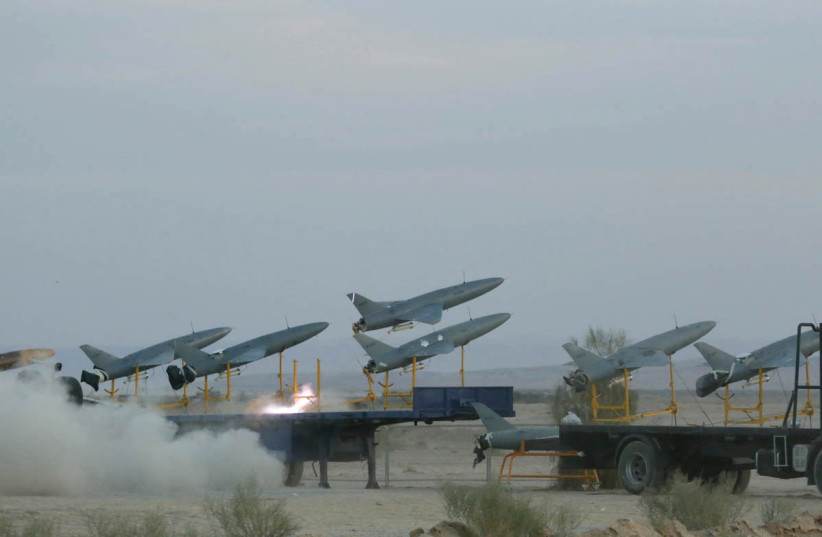The IDF denied on Monday reports that the Iranian attack early Sunday morning had caused damage to the main runway at Israel's Nevatim Airbase, a C-130 transport aircraft, and several storage facilities on base, as reported on ABC News, citing an American source.
According to the ABC report, the damage was not negligible but significantly less than what Iran intended to do.
Iran's Foreign Minister, Hossein Amir-Abdollahian, said in a speech to ambassadors and diplomatic mission representatives in Tehran, “The Iranian military operation against Israel was limited and aimed at squadrons of F-35 aircraft. The Israeli attack on our consulate violates international laws and treaties, and we will not hesitate to defend our interests in the face of any attack."
Iran's attack on Israel
In Iran’s first-ever direct attack on Israel, the Islamic Republic launched approximately 350 drones and missiles across the region on Saturday night, prompting sirens all across the country, disrupting and possibly altering the power balance in the Middle East.
Of the drones and missiles launched, 99% of them were shot down. Drones and missiles were also launched from Iraq, Syria, Lebanon, and Yemen. They included 170 drones, 120 ballistic missiles, and 30 missiles containing over 60 tons of explosives.

Initially, IDF Spokesman Daniel Hagari said that minor damage was sustained to infrastructure at the IDF Nevatim base in southern Israel during the attack.
An additional 40 rockets were fired on Israel from Lebanon, leading to an Israeli counterstrike in close to real-time.
None of the drones or cruise missiles entered Israeli airspace, while Hagari said that only a small number of ballistic missiles managed to penetrate.
The attack came after Iran accused Israel of killing top Islamic Revolutionary Guard Corps commander Mohammad Reza Zahedi on April 1, a top coordinator with Hezbollah.
